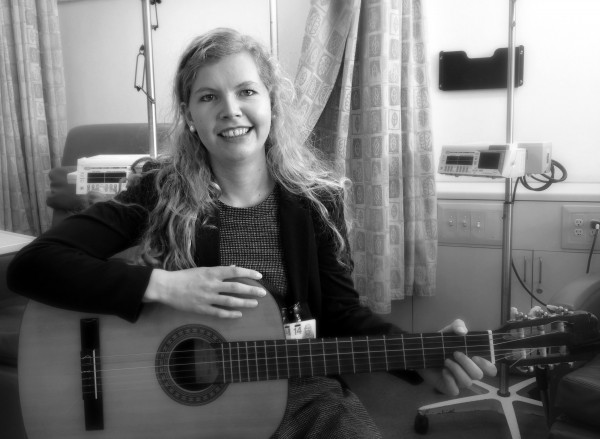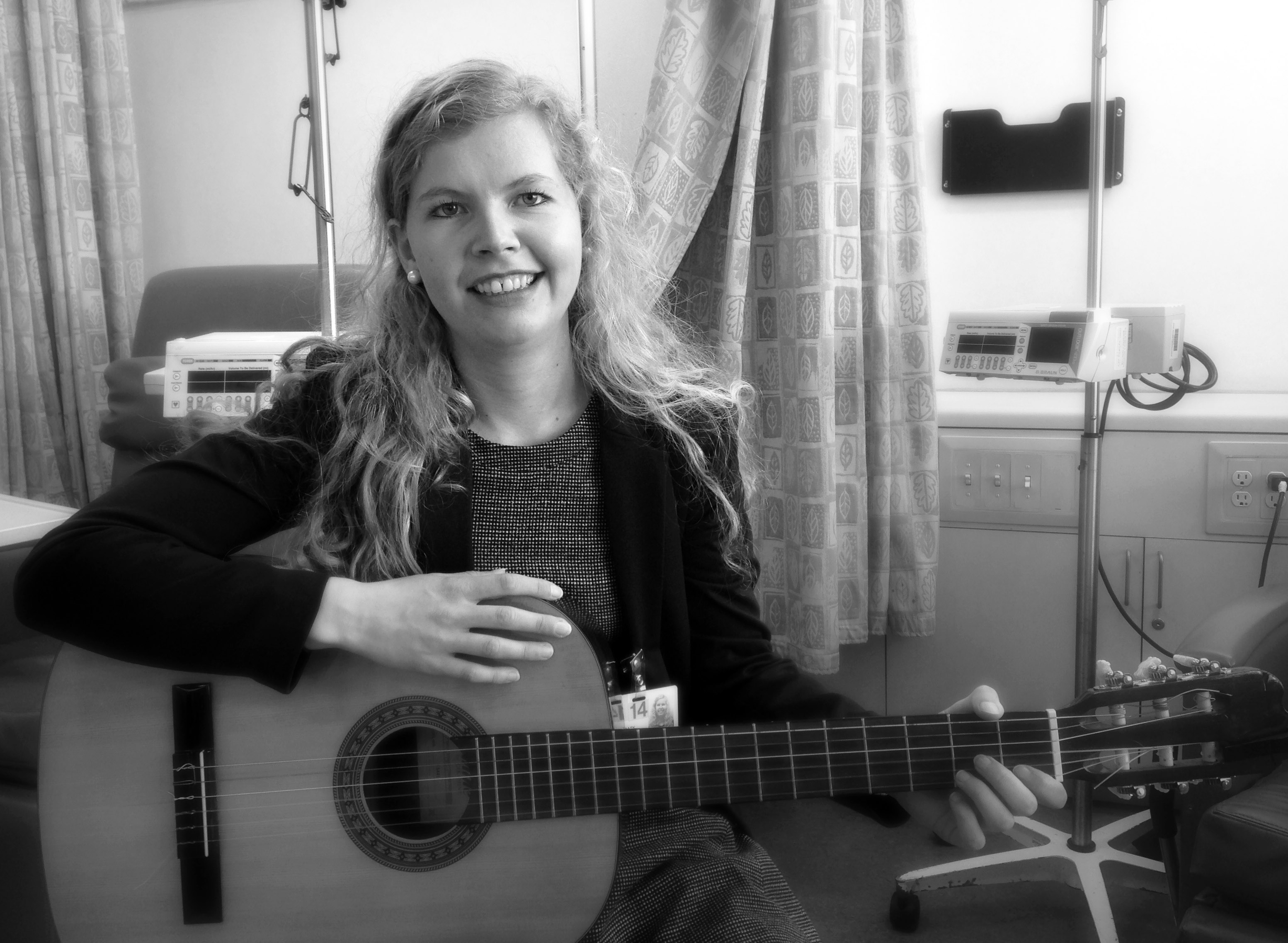Julie Mangersnes, TTS Music Therapy Fellow


The vestibule at the Mount Sinai Roosevelt Hospital in New York is open and inviting, as is the person I am about to meet. Julie Mangersnes is warm and friendly with classic Nordic features. As she moves through the hallways of the hospital, on her way to rounds, it becomes apparent that she is well known and well liked within these walls.
Julie is a Thanks To Scandinavia Music Therapy Fellow at The Louis Armstrong Center for Music & Medicine at Mount Sinai Beth Israel in New York.
The decision to become a music therapist came to her rather easily. When Julie worked as an assistant in a nursing home, one of the patients with Alzheimer’s loved music. Julie used to sing the patient’s favorite song as often as she could. As the disease progressed, the patient started to lose her verbal capacity, however she was remained capable of singing and repeating the lyrics of the song perfectly. This caught Julie’s interest and she decided to study music therapy.
Music therapy has been known across the ages. In the Bible, David’s harp soothed Saul’s dark soul. Apollo is the ancient Greek god of music and of medicine. It is believed that Aesculapius cured diseases of the mind by using song and music. Plato and Aristotle both taught that music affected the soul and emotions. Live music was used in hospitals after both World Wars as part of the treatment program for recovering soldiers. In World War II, music therapy was recognized as a medical discipline. Music therapy has existed in its current form in the United States since post World War II, when the first undergraduate degree program was established.
There are growing numbers of certified music therapists all over the world today. In the U.S. there are about 5000 certified music therapists and in Norway there are currently about 450 trained music therapists, where music therapy in the medical context is less developed, and has traditionally been connected to educational and community settings, mental health centers, and institutions for more mature adults.
The Louis Armstrong Center for Music & Medicine, founded in 1994, focuses on treating the whole person— body, mind and spirit. Julie says that “in addition to using music to improve physical symptoms, we want to assess each patient’s mind-body connection, and learn how the mind is affecting the body and vice versa, to better address coping-mechanisms, physical, emotional, cognitive, developmental, social and spiritual needs of the person. We work with patients across the life span, from premature infants in the NICU to people recovering from surgery to end-of-life care.” As a research fellow, Julie has been part of a research protocol in chemotherapy with Joanne Loewy and Dr. Gabriel Sara.
Coming from Norway, “a different cultural background has been a challenge, knowing how to apply the right formula. I needed to build a repertoire. It so happens that I meet a lot of Spanish people at the hospital, so there may be a request for Spanish music for example, in which case I do my homework and develop culturally and spiritually a different approach. I once had a Jewish patient who only wanted to listen to Hebrew music. I was told my Hebrew pronunciation was excellent! All these experiences open up for opportunities in so many ways.”
As part of Julie’s fellowship at The Louis Armstrong Center for Music & Medicine at Mount Sinai Beth Israel Julie has had the privilege of working with the best in the medical field, including researchers, scholars and interns. “The Louis Armstrong Center is unique, as is the quality of the team that works here. The Center has positioned itself internationally as a leader in the field and plays a prominent role in relation to the progress being made in music therapy within medical contexts”, says Julie, who has recently accepted a position in a prominent hospital in Norway.
“The program has unquestionably strengthened the knowledge and understanding of the role of and principles of a therapeutic approach, having had this unique and selective training opportunity. It is my hope that I will be able to make valuable contributions in the field in future research in Norway. It will furthermore allow me to pursue a PhD one day.”
“Finishing this year at Mount Sinai Beth Israel, I will have become better prepared for the challenges in my new position at the University hospital in Oslo, in particular research skills and experience that will allow for advancing the discipline. I am so grateful to the director of the program, Dr. Joanne Loewy, and for my Thanks To Scandinavia scholarship, for providing me with this wonderful opportunity.”